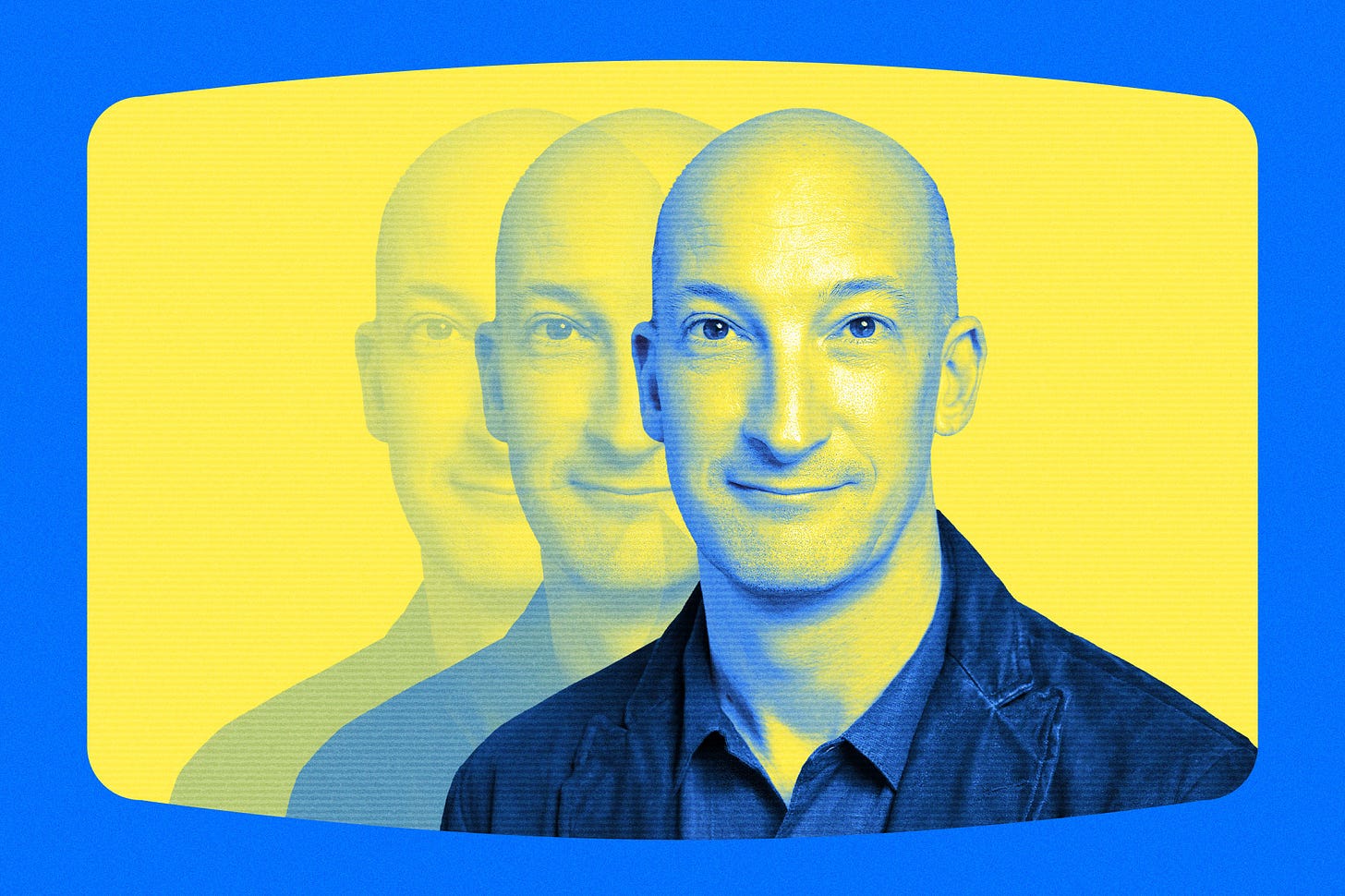WME's Top Digital Exec: AI's Here. Now Let's Cash In (Carefully)
Chris Jacquemin on the chance to give creators 'superpowers' and big paydays

Elaine Low reports on TV from L.A. She recently wrote about the rise of executive coaching in Hollywood and scooped the first five shows (Bridgerton and more) whose writers earned streaming bonuses since the strike.
Today I’ve got some insights for you on what might just be the thorniest issue facing the industry right now: the use of artificial intelligence in filmmaking and TV-making.
Hundreds of writers, actors and filmmakers including Ben Stiller, Cynthia Erivo and Taika Watiti signed an open letter to President Trump last week after OpenAI and Google proposed the use of copyrighted material to train AI models. And last fall, as I previously reported, writers and showrunners were incensed by The Atlantic’s discovery that 139,000 TV and film scripts had already been used to train AI. The WGA and SAG-AFTRA won some concessions from the studios on the issue of AI after the 2023 strikes, but with the tech evolving so rapidly, those guardrails were worded rather broadly in the resulting contracts, so anxiety over its incursion remains.

Depending on whom you talk to, AI is either a brewing crisis or an intriguing new opportunity. Even as some creatives thunder against it, others are quietly using its handy tools for storyboarding (as covered by my colleague Erik Barmack) and script coverage. Amazon Prime Video’s House of David integrated generative AI into the production of the opening sequence of a recent episode. Like it or not, this technology is here — so we’re looking not so much at whether Hollywood creators will find themselves working with it, but when and how.
With all that in mind, it seemed time to check in with someone in the know about AI in this town. I spoke with WME’s head of digital strategy, Chris Jacquemin, on Thursday about the industry alarm bells ringing. (Endeavor founder Ari Emanuel, now exec chairman of the newly private WME Group, last month joined Elon Musk in a joint $97.4 billion spurned bid to acquire OpenAI.)
Jacquemin has been with the agency for more than two decades — he joined Endeavor in 2000, with stints at Disney and CBS before that — and works with client teams while overseeing digital strategy to identify opportunities in emerging areas including AI, Web3, gaming and the creator economy. He also leads the company’s partnerships with Vermillio and Loti, two companies helping protect clients’ IP and images.
During our chat (lightly edited for clarity), Jacquemin and I talked about how both the agency and its clientele are using AI in their endeavors (no pun intended), the two AI companies WME works closely with to protect clients’ likenesses and voices from IP theft, and where the revenue opportunities are with these tools.
From our conversation, you’ll learn:
Feedback from clients WME is getting about AI
How the agency is using AI to protect clients’ IP and images
How WME is using AI script coverage tools and where they fall short
The “superpowers” these tools can offer for creators, on the cheap, that make entry into the industry easier
Hollywood agencies’ top frustration with the gen AI companies
Why third-party players are crucial to fully protect talents’ image and IP
How one animation company client is able to reduce time and costs by up to 90 percent using AI in production
The surprise benefit for creators who use AI and the new deal models it’s enabling
What the rise of AI has in common with the early days of YouTube


